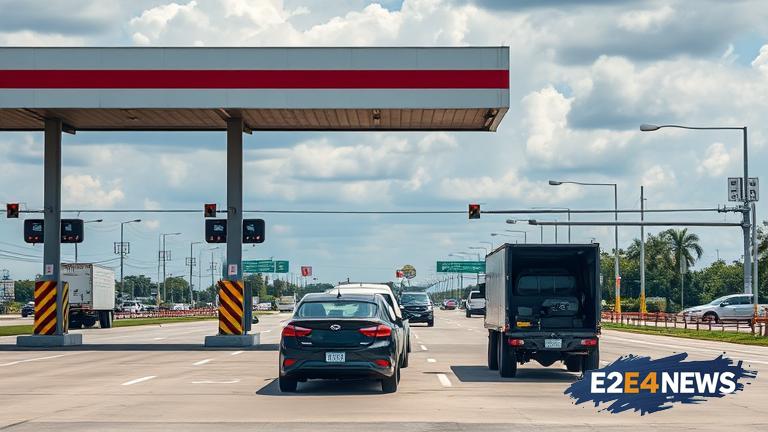In a move that is being hailed as a major crackdown on illegal immigration, Florida’s Attorney General has revealed that all truck weigh stations in the state will now be used as checkpoints for Immigration and Customs Enforcement (ICE). This decision is expected to have far-reaching implications for the state’s immigration landscape. The weigh stations, which are typically used to monitor the weight of commercial vehicles, will now be staffed by ICE agents who will be responsible for checking the immigration status of drivers and passengers. The move is part of a broader effort by the state to increase cooperation with federal immigration authorities. According to the Attorney General, the decision was made in response to growing concerns about the presence of undocumented immigrants in the state. The new checkpoints will be located at all major highways and interstates, ensuring that all commercial vehicles passing through the state will be subject to inspection. The ICE agents will be authorized to ask for identification and immigration documents from drivers and passengers, and those found to be in the country illegally will be subject to detention and deportation. The move has been welcomed by many who argue that it will help to reduce the number of undocumented immigrants in the state. However, others have expressed concerns about the potential impact on the state’s economy, particularly in industries that rely heavily on immigrant labor. The decision has also raised questions about the potential for racial profiling and the treatment of immigrants who are detained at the checkpoints. Despite these concerns, the Attorney General has insisted that the new checkpoints will be operated in a fair and transparent manner, with a focus on targeting those who are in the country illegally. The move is part of a broader trend of increased cooperation between state and federal authorities on immigration enforcement. Other states, such as Arizona and Texas, have also implemented similar measures in recent years. The use of weigh stations as ICE checkpoints is seen as a more efficient and effective way of enforcing immigration laws, as it allows authorities to target commercial vehicles that are more likely to be carrying undocumented immigrants. The decision has also been praised by many in the trucking industry, who argue that it will help to reduce the number of undocumented immigrants who are being smuggled into the country. However, others have expressed concerns about the potential impact on the industry, particularly in terms of the increased costs and delays that may result from the new checkpoints. The Attorney General has insisted that the new checkpoints will not disrupt the flow of commerce, and that they will be operated in a way that minimizes delays and inconvenience to drivers. The move is also seen as a major victory for those who have been advocating for tougher immigration laws. Many have argued that the current system is too lenient and allows too many undocumented immigrants to enter the country. The use of weigh stations as ICE checkpoints is seen as a more effective way of enforcing immigration laws and preventing the entry of undocumented immigrants. The decision has also raised questions about the potential for increased tensions between state and federal authorities, particularly if the new checkpoints are seen as overly aggressive or heavy-handed. However, the Attorney General has insisted that the new checkpoints will be operated in a fair and transparent manner, with a focus on targeting those who are in the country illegally. The move is part of a broader effort by the state to increase cooperation with federal immigration authorities, and is seen as a major step forward in the fight against illegal immigration. The use of weigh stations as ICE checkpoints is a significant development in the ongoing debate about immigration reform, and is likely to have major implications for the state’s immigration landscape. The decision has been welcomed by many who argue that it will help to reduce the number of undocumented immigrants in the state, but has also raised concerns about the potential impact on the state’s economy and the treatment of immigrants who are detained at the checkpoints.
